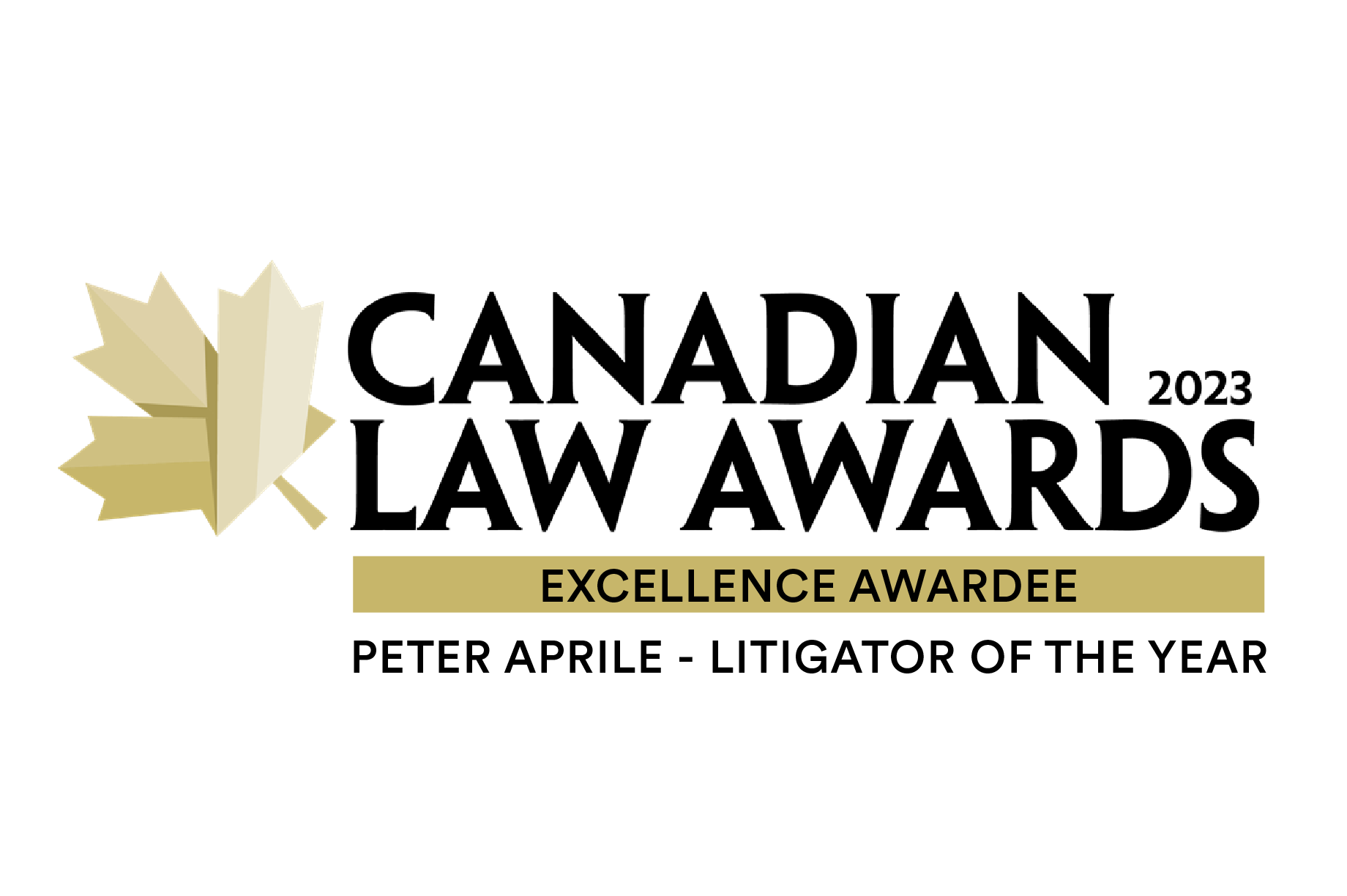Section 227.1 of the Income Tax Act and section 323 of the Excise Tax Act provide that the CRA can assess corporate directors personally for a corporation’s failure to remit payroll deductions
and GST/HST. A number of defences are available to directors to defend against such assessments.
The most common—and often the most misunderstood —is the due diligence defence.
If a director can establish that he or she exercised the degree of care, diligence, and skill necessary to prevent the corporation’s failure to remit, the director will be considered duly diligent and will
not be held personally liable for the corporation’s failure to remit. The degree of care (commonly known as the standard of care) depends on the facts. The courts have held that the relevant factors that influence the standard of care include, but are not limited to, the circustances surrounding the corporation’s failure to remit and the director’s personal attributes, frailties, experience, and power.
Buckingham v. The Queen (2010 TCC 247; 2011 FCA 142) is a unique directors’ liability case. The taxpayer, Mr. B, did not argue that the CRA’s assess- ment suffered from any technical defect, that the assumptions of fact were wrong, or that the quantum assessed was too high. Instead, he simply argued that he had been duly diligent.
The TCC’s Decision
Briefly, the facts were as follows. Mr. B was the director and shareholder of M Co, which failed to remit payroll deductions for the period from August 2002 to August 2003 and GST/HST for the period from January 2003 to June 2003. Mr. B said that M CO’s principal reason for its failure to remit payroll deductions was a failed contract with a client. The financial impact of the failed contract, along with some other unanticipated events, contributed to M CO’s financial collapse (“the unforeseeable events”). After the unforeseeable events occurred, M CO continued to operate; it attempted to attract investors and borrow money to ensure that it remitted its payroll deductions. In February 2003, M CO began to liquidate its assets to pay its payroll deduction arrears. Its attempts were unsuccessful, and it failed to remit the balance of its payroll deductions (“the payroll reasons”).
With respect to M CO’s failure to remit GST/HST, Mr. B explained that the M CO employee-officer responsible for preparing its GST/HST returns advised Mr. B that M CO was not required to remit GST/HST and that the company was entitled to a refund. Mr. B relied on this information, and M CO did not remit GST/HST (“the GST reason”).
The TCC considered the payroll reasons and the GST reason separately to determine whether Mr. B had exercised the degree of care necessary to prevent M CO’s failure to remit the required amounts. The court held that in light of the unforeseeable events, M Co should not be expected to cease operations and that the law did not prevent Mr. B from relying on the due diligence defence. The court also held that Mr. B’s unsuccessful attempts to attract investors and borrow money were reasonable and preventive measures sufficient to satisfy the standard of care and establish that Mr. B was duly diligent. Mr. B did not present any evidence that the amount of GST/HST assessed was too high or that it was reasonable for him to rely on M Co’s officer-employee responsible for calculating the GST/HST payable. As a result, the TCC held that without relevant and admissible evidence, the GST reason itself was insufficient to satisfy the burden of proof on Mr. B to show that he exercised the degree of care, diligence, and skill to prevent M CO’s failure to remit GST/HST.
The FCA’s Decision
Mr. B appealed the TCC’s decision on the basis that he had been duly diligent in preventing M CO’s failure to remit GST/HST. The government appealed on the basis that Mr. B’s decision to cause M CO to continue to operate and pay other creditors was fatal to the due diligence defence.
In the FCA’s view, the TCC had considered the payroll reasons and the GST reason separately because payroll deductions, unlike GST/HST, are not funded by third parties. The FCA interpreted the TCC’s due diligence analysis as conditional on the existence of sufficient cash flow and ability to pay. The FCA held that the TCC had erred in holding that a lesser standard of care applies related to unremitted payroll deductions and a higher standard of care applies to GST/HST remittances. It confirmed that the appropriate standard of care does not change depending on the corporation’s ability to remit or on the type of unremitted tax (at paragraphs 42, 45, and 47).
The FCA did not disturb the TCC’s finding of fact that until February 2003, Mr. B took positive steps to prevent M CO’s failures to remit. Moreover, the FCA confirmed that M CO’s continued operation, and its subsequent failure to remit, did not preclude Mr. B from relying on the due diligence defence. However, the court said that when a director’s efforts to prevent failures to remit cease or become unreasonable, the due diligence defence will no longer be available.
The FCA noted that the TCC found as a fact that in February 2003 Mr. B ceased his efforts and his reason- able expectations to prevent M CO’s failures to remit. Instead, he began to attempt to sell M CO’s assets to pay its tax arrears, continued to operate, and contin- ued to fail to remit payroll deductions and GST/HST payments. At this time, Mr. B consciously transferred his business risks to the government, knowing that it was unlikely that M CO would remit future payroll amounts. Therefore, he could not logically or legally claim that he was duly diligent to prevent the failures to remit amounts after February 2003. On this basis, the FCA held that the TCC had erred in concluding that Mr. B was duly diligent after February 2003, because Mr. B was legally precluded from relying on the due diligence defence.
The FCA and some tax commentators have interpreted the TCC’s reasons for judgment as suggesting a change in the standard of care based on the corporation’s cash position and the type of unremitted tax. Although this interpretation is understandable, with great respect, I believe that the TCC did not suggest any change in the standard of care based on these factors: the TCC held that the due diligence defence related to the payroll amounts, and that the unremitted GST/HST should be analyzed separately because Mr. B posited separate reasons for the failures to remit (the payroll reasons and the GST reason). However, I believe that the TCC’s reasons for judgment could be interpreted to raise the standard of care in GST/HST cases and that the FCA’s decision confirms that the standard of care should not change based on the type of tax.
In my view, the TCC’s and FCA’s reasons for judgment provide a greater understanding of the law in this area. The FCA’s decision confirms that the source of funds and tax does not raise the standard of care, and that a director is not precluded from relying on the due diligence defence on the basis that the corporation continued to operate after its initial failure to remit. In addition, the courts’ comments on the GST reason highlight the important relationship between the quantum assessed, the due diligence defence, and the evidence required to satisfy the burden of proof.
Anecdotal evidence suggests that the CRA is issuing an increased number of directors’ liability assessments. In my experience, successful directors’ liability repre- sentations must include consistent submissions at all stages of the tax dispute resolution process and must demonstrate a comprehensive understanding of the salient facts and the law. When those requirements are met, directors are better able to establish credibility, prepare comprehensive legal submissions, and success- fully resolve their tax disputes at an early stage.













.png?width=400&height=400&name=CT-How_Can_We_Help-22_july_NewGraphic_b(small).png)








